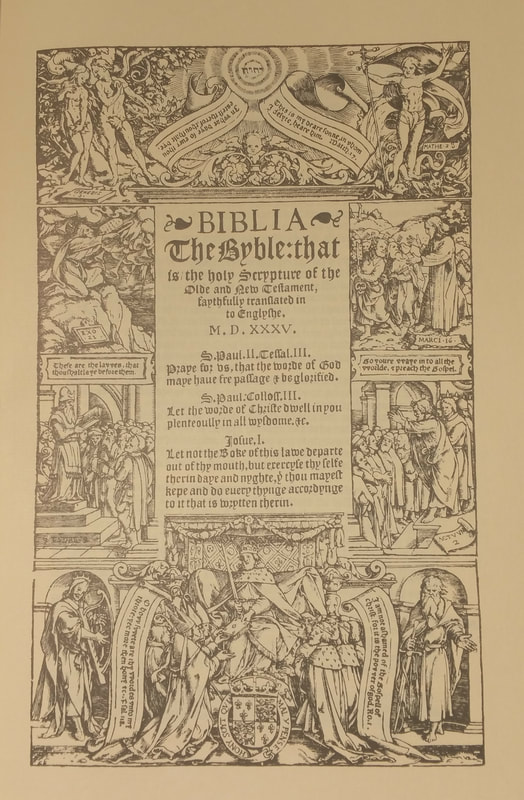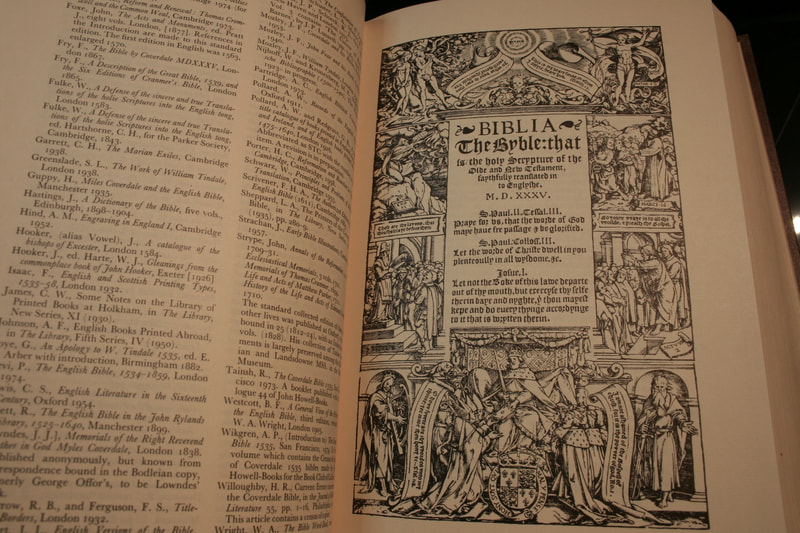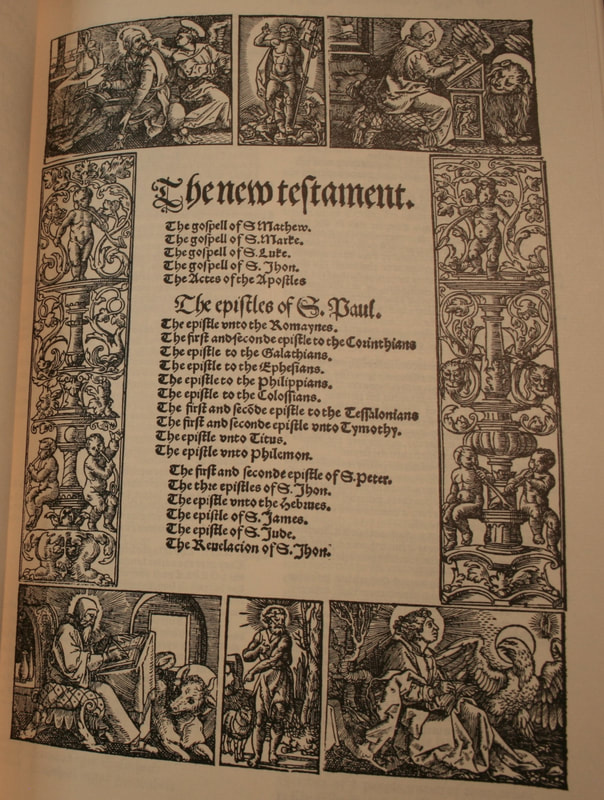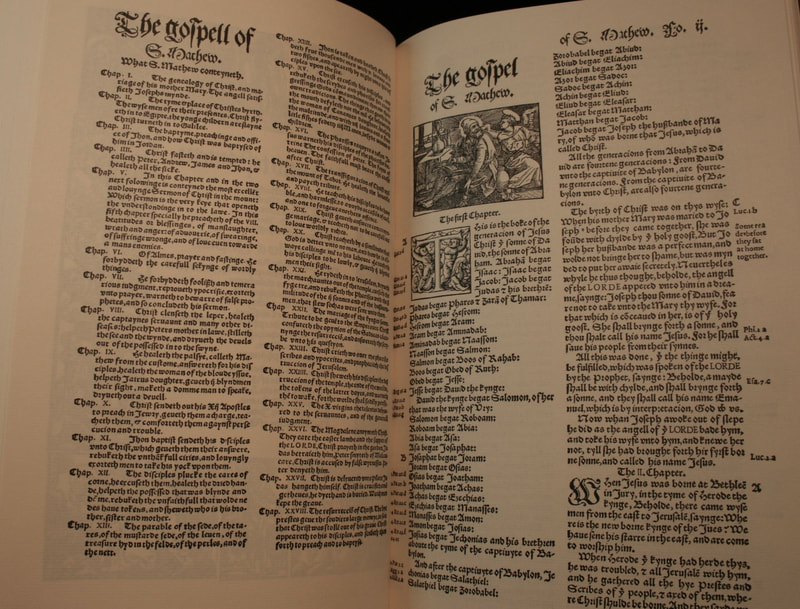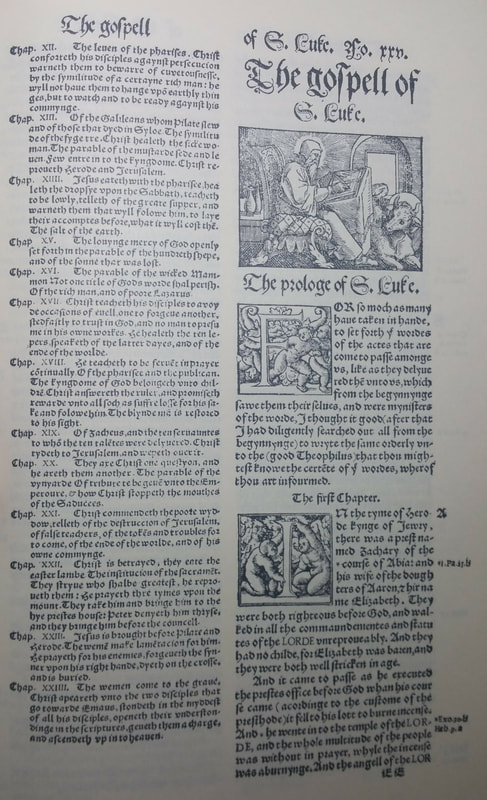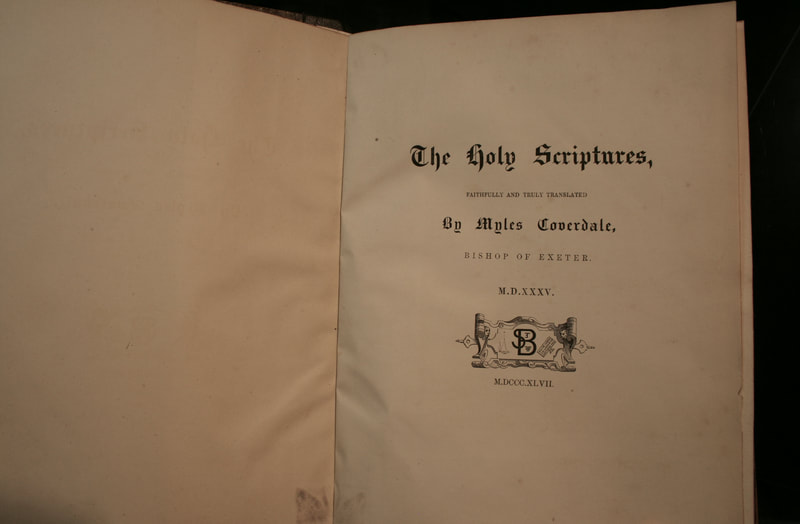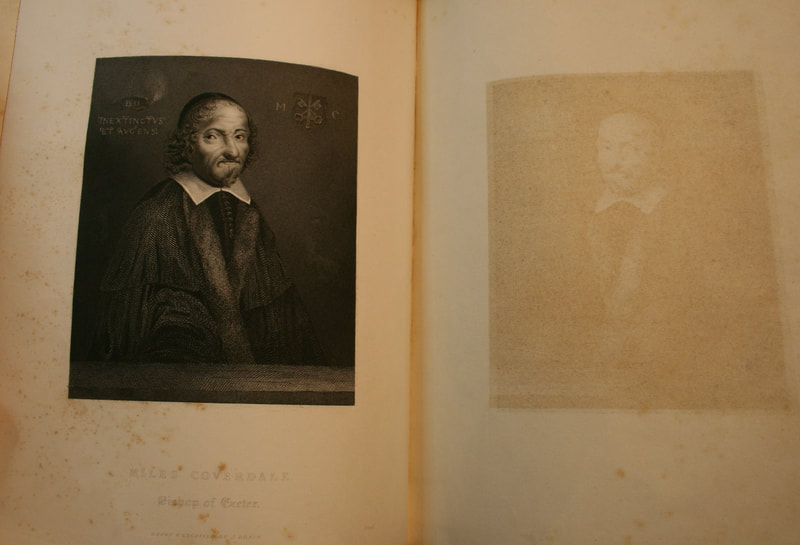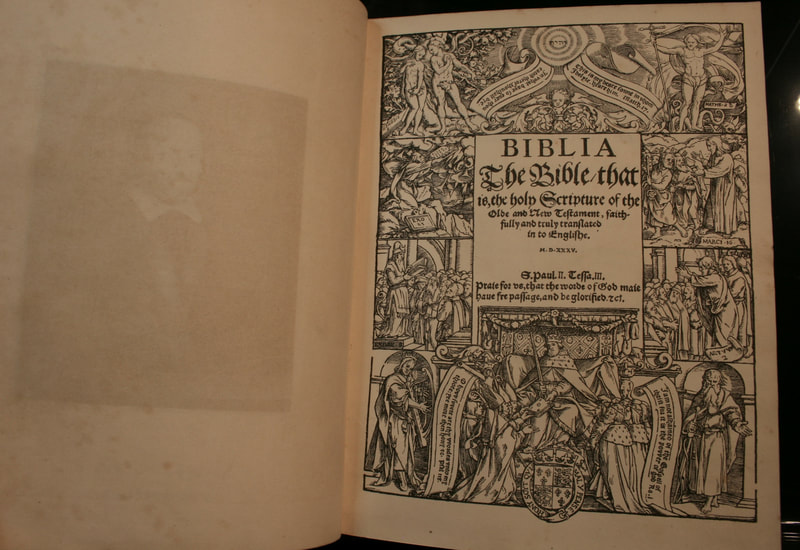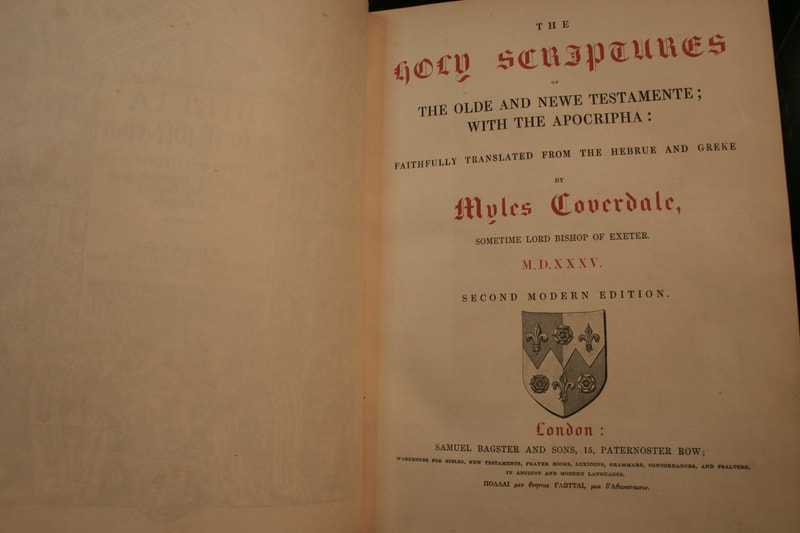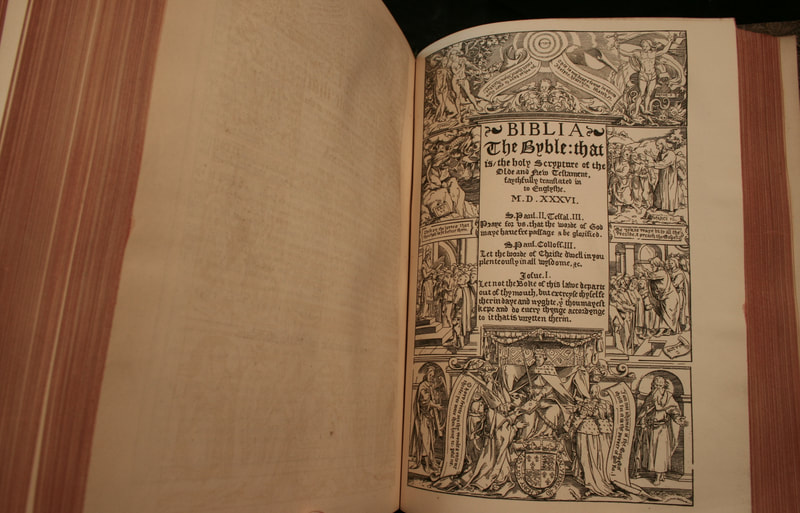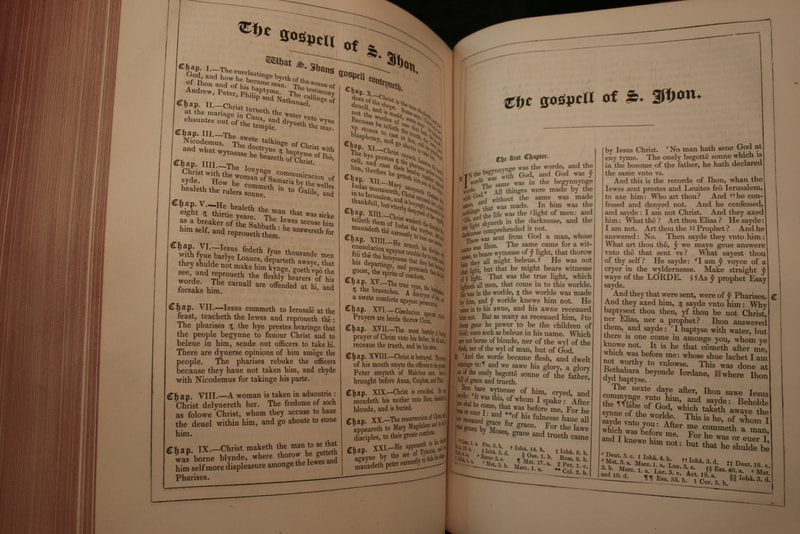1535 Coverdale Bible
The First Complete English Bible
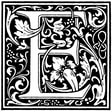
ngland, through the years of history, has, for its majority, had a place for the Gospel. Not allowing itself to be swept away by the traditions of the Catholic Church. However, during the 15th century we saw England slip away from the Truth, but only for a moment. And it was in its return to the Gospel that changed the world.
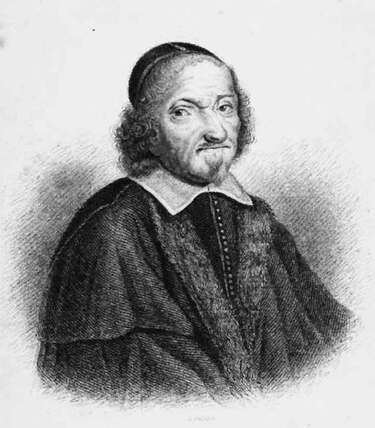 Miles Coverdale 1488-1569
Miles Coverdale 1488-1569
After the publication of Erasmus’ Greek New Testament, Light once again was shown on the world and England began its reformation. We saw the courageous struggles of William Tyndale to break through the barriers that England had erected, giving his life for the freedom of the Scriptures. This started a movement in England, which by the orchestration of the Holy Spirit was happening over all of Europe. These brave acts of Tyndale and the Truth the Scriptures announced, gave other brave men the motivation and enthusiasm to continue to proclaim the Gospel, men like Thomas Bilney, Hugh Latimer, Robert Barnes, and Myles Coverdale. These men had a commonality; they were all from the University of Cambridge, professors and students, and they had a love for the Bible.
Thomas Bilney, troubled in spirit, when he could find no hope or comfort from the Church of Rome, and in fact, he had wasted all his money on penance and indulgences, he became even worse off than he was. Realizing this despair, he turned to the fountain of Truth and purchased a copy of a New Testament. He opened to Paul saying that “Christ came into the world to save sinners, of whom I am chief”, (1Tim 1:15). It was upon reading these words he became exhilarated and as he says, “my bruised bones leapt for joy.” After his conversion, Bilney led Hugh Latimer to Jesus, who was a zealous papist, a learned and successful champion of the Romish Church, but turned his passion to preaching the Gospel of Jesus. Robert Barnes, who preached against the Bishops of the Church, knowing their corruption, but was shown the Truth by Bilney, and better guided him, converting him to Christ.
Myles Coverdale, born 1488-1569 in Yorkshire, England, became a student of Robert Barnes at Cambridge and was carried away by the preaching of Latimer and Bilney. This stirred a spark in him and he became an advocate of the Reformation. He often attended the assemblies at the “White Horse”, where Gospellers met amongst themselves. Coverdale and Barnes became friends, and in 1526 when Wolsey arrested Barnes for heresy, Coverdale accompanied him. It was here Barnes was given a choice, retract or burn. Folding under the pressure, Barnes retracted and suffered a humiliating penance for his heresy. Coverdale, at seeing the wrongful treatment on his friend, said that from this time, “he gave himself up wholly to spread the truth of the gospel”.
Thomas Bilney, troubled in spirit, when he could find no hope or comfort from the Church of Rome, and in fact, he had wasted all his money on penance and indulgences, he became even worse off than he was. Realizing this despair, he turned to the fountain of Truth and purchased a copy of a New Testament. He opened to Paul saying that “Christ came into the world to save sinners, of whom I am chief”, (1Tim 1:15). It was upon reading these words he became exhilarated and as he says, “my bruised bones leapt for joy.” After his conversion, Bilney led Hugh Latimer to Jesus, who was a zealous papist, a learned and successful champion of the Romish Church, but turned his passion to preaching the Gospel of Jesus. Robert Barnes, who preached against the Bishops of the Church, knowing their corruption, but was shown the Truth by Bilney, and better guided him, converting him to Christ.
Myles Coverdale, born 1488-1569 in Yorkshire, England, became a student of Robert Barnes at Cambridge and was carried away by the preaching of Latimer and Bilney. This stirred a spark in him and he became an advocate of the Reformation. He often attended the assemblies at the “White Horse”, where Gospellers met amongst themselves. Coverdale and Barnes became friends, and in 1526 when Wolsey arrested Barnes for heresy, Coverdale accompanied him. It was here Barnes was given a choice, retract or burn. Folding under the pressure, Barnes retracted and suffered a humiliating penance for his heresy. Coverdale, at seeing the wrongful treatment on his friend, said that from this time, “he gave himself up wholly to spread the truth of the gospel”.
Coverdale upon meeting Thomas Cromwell at the house of Sir Thomas More, became friends with the viceregent of ecclesiastical affairs of king Henry VIII. Cromwell advised him to enter upon the study of the Scriptures. Although he also warned him against being too open in expressing his evangelical statements. As the years progressed, Coverdale took the advice of his friend and studied the Scriptures. He also followed Bilney and Latimer, being moved and inspired by their bold proclamation of the Gospel. Coverdale began to proclaim the Gospel openly with his friends, Bilney and Latimer, and in 1528 caught the attention of the Romish bishops. He was arrested, but quietly withdrawn from public notice. The unusual easiness of punishment that was inflicted on Coverdale was possibly because of the friendship and influence Cromwell had with the Bishops. After this, from 1528-1535, it is unknown of the whereabouts of Coverdale. My belief is that he was commissioned and protected by Cromwell to commence his work on the Holy Scriptures. We have evidence of this in a letter from Coverdale to Cromwell in 1531. It states, “Now I begin to taste the Holy Scriptures, with holy doctrine and ancient Doctors, unto whose knowledge I cannot attain without diversity of books. Nothing in the world I desire but books. Moreover, as touching my behavior, with all lowliness, I offer myself, not only to be ordered in all things, as shall please your wisdom.”
Cromwell, being an advocate for the Reformation, but knowing the boundaries of politics, decided to produce the first complete Bible translated into the English language. Tyndale had only a few years previous released his New Testament, but the boldness of Tyndale’s character had not gained favor with the men of political stature. Cromwell saw the need of the Holy Scriptures in the English tongue, therefore using his political clout, he planned to release the English Bible openly to the king. It is presumed that during the time of 1528-1535, Coverdale was hard at work, translating this English Bible at the instruction of Cromwell.
Coverdale used Tyndale’s English translation of the New Testament and also the translation of his Pentateuch, however, at this time, that was all the farther Tyndale had progressed, therefore, Coverdale, not being proficient in Hebrew, translated the remainder from Luther’s German Bible, the Swiss Bible of Zwingli and Leo Jud, and Jerome’s Latin Vulgate. Coverdale and Cromwell were supporters of Tyndale’s work; however, Cromwell knew what type of translation would please the king, therefore, he had a sense of what would be approved for production in England. His translation removed any ties with Tyndale, for having that name on any part of this work would immediately be deemed heretical. Coverdale also left out the objectional prologues and glosses of Tyndale. Additionally, in the same light, Coverdale translated some parts of the Bible which had a heretical tone, into a softer Romish phrase, in hopes that it would be more acceptable. Thus, his translation was undertaken as a compromise, but yielded nothing of Coverdale’s evangelical spirit and still pronounced the Truth. Coverdale was an outstanding poet and litterateur. A man of letters so eloquent that his rhythmic flow would be unmatched. We still use his translation in many of the Psalms and Prophets, including the famous Psalm 23. The poetic flow of this chapter, among others, did not exist until Coverdale applied his pen to these Holy Scriptures.
It was at this time that God was working on the heart of king Henry VIII through his wife Anne Boleyn, Thomas Cromwell, and Thomas Cranmer. It was through the persuasion of these three advocates of the Reformation that enabled the legal production of the English Bible. Coverdale, with the help of Cromwell, wrote a dedication to the king on the front inside page; thus, sealing the favor of the king.
Before the production of the Coverdale Bible in 1535, the king and his church had an urge and an increased demand to produce an English Bible. Being excommunicated from the Romish Church in 1533 (made official in 1538 by a papal bull), and in 1534 the king, through the influence of the three-aforementioned people, commissioned Archbishop Cranmer to produce an English Bible. Unbeknownst to Cranmer, Coverdale was already well under way with this work, however, Cranmer did his best to unite the Word of God, but to no avail. Not having the scholarly knowledge himself to perform this task, he started by dividing the New Testament into nine or ten parts, giving each part to a different learned Bishop of the Church. These men, not being led of the Spirit, resisted Cranmer’s request. One of which, instead of returning his portion after correcting and translating it as requested, wrote to the Archbishop saying, “I marvel what my Lord of Canterbury meaneth, that thus abuseth the people, in giving them liberty to read the Scriptures; which doeth nothing else but infect them with heresy. I have bestowed never an hour on my portion, nor never will. And therefore my Lord shall have this book again, for I never will be guilty of bringing the simple people into error.” Therefore, the effort of Cranmer was all for nought, not knowing that this work, inspired by the Holy Spirit was taking place in secret at this same time.
Coverdale’s work was completed in 1535 and published in Zurich by Christoph Froschauer, the same man who had a few years earlier published the Zurich Bible. The Coverdale Bible was met with great success and it helped awaken the opposition to the Scriptures in English. The Coverdale Bible is significant because it shows the change in England progressing toward the freedom of Scripture, although the Reformation was still being very much opposed, for we must remember that it was a year later in 1536 that Tyndale was strangled and burned at the stake. Tyndale’s last words were a plea to the king that his eyes would be opened to the Scriptures. They indeed were and over the next few years we see the further acceptance of the English Bible in the first authorized English version in 1539 called the Great Bible.
Cromwell, being an advocate for the Reformation, but knowing the boundaries of politics, decided to produce the first complete Bible translated into the English language. Tyndale had only a few years previous released his New Testament, but the boldness of Tyndale’s character had not gained favor with the men of political stature. Cromwell saw the need of the Holy Scriptures in the English tongue, therefore using his political clout, he planned to release the English Bible openly to the king. It is presumed that during the time of 1528-1535, Coverdale was hard at work, translating this English Bible at the instruction of Cromwell.
Coverdale used Tyndale’s English translation of the New Testament and also the translation of his Pentateuch, however, at this time, that was all the farther Tyndale had progressed, therefore, Coverdale, not being proficient in Hebrew, translated the remainder from Luther’s German Bible, the Swiss Bible of Zwingli and Leo Jud, and Jerome’s Latin Vulgate. Coverdale and Cromwell were supporters of Tyndale’s work; however, Cromwell knew what type of translation would please the king, therefore, he had a sense of what would be approved for production in England. His translation removed any ties with Tyndale, for having that name on any part of this work would immediately be deemed heretical. Coverdale also left out the objectional prologues and glosses of Tyndale. Additionally, in the same light, Coverdale translated some parts of the Bible which had a heretical tone, into a softer Romish phrase, in hopes that it would be more acceptable. Thus, his translation was undertaken as a compromise, but yielded nothing of Coverdale’s evangelical spirit and still pronounced the Truth. Coverdale was an outstanding poet and litterateur. A man of letters so eloquent that his rhythmic flow would be unmatched. We still use his translation in many of the Psalms and Prophets, including the famous Psalm 23. The poetic flow of this chapter, among others, did not exist until Coverdale applied his pen to these Holy Scriptures.
It was at this time that God was working on the heart of king Henry VIII through his wife Anne Boleyn, Thomas Cromwell, and Thomas Cranmer. It was through the persuasion of these three advocates of the Reformation that enabled the legal production of the English Bible. Coverdale, with the help of Cromwell, wrote a dedication to the king on the front inside page; thus, sealing the favor of the king.
Before the production of the Coverdale Bible in 1535, the king and his church had an urge and an increased demand to produce an English Bible. Being excommunicated from the Romish Church in 1533 (made official in 1538 by a papal bull), and in 1534 the king, through the influence of the three-aforementioned people, commissioned Archbishop Cranmer to produce an English Bible. Unbeknownst to Cranmer, Coverdale was already well under way with this work, however, Cranmer did his best to unite the Word of God, but to no avail. Not having the scholarly knowledge himself to perform this task, he started by dividing the New Testament into nine or ten parts, giving each part to a different learned Bishop of the Church. These men, not being led of the Spirit, resisted Cranmer’s request. One of which, instead of returning his portion after correcting and translating it as requested, wrote to the Archbishop saying, “I marvel what my Lord of Canterbury meaneth, that thus abuseth the people, in giving them liberty to read the Scriptures; which doeth nothing else but infect them with heresy. I have bestowed never an hour on my portion, nor never will. And therefore my Lord shall have this book again, for I never will be guilty of bringing the simple people into error.” Therefore, the effort of Cranmer was all for nought, not knowing that this work, inspired by the Holy Spirit was taking place in secret at this same time.
Coverdale’s work was completed in 1535 and published in Zurich by Christoph Froschauer, the same man who had a few years earlier published the Zurich Bible. The Coverdale Bible was met with great success and it helped awaken the opposition to the Scriptures in English. The Coverdale Bible is significant because it shows the change in England progressing toward the freedom of Scripture, although the Reformation was still being very much opposed, for we must remember that it was a year later in 1536 that Tyndale was strangled and burned at the stake. Tyndale’s last words were a plea to the king that his eyes would be opened to the Scriptures. They indeed were and over the next few years we see the further acceptance of the English Bible in the first authorized English version in 1539 called the Great Bible.
1535 Coverdale Bible Digital Ebook Preview
to purchase the complete Bible in Digital Ebook with High Res PDF downloads click here
to purchase the complete Bible in Digital Ebook with High Res PDF downloads click here
Samuel Bagster 1847 Reprint of the the 1535 Coverdale Bible
